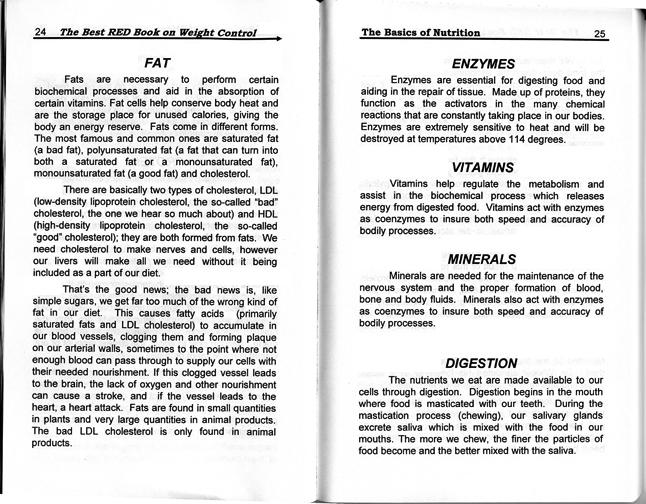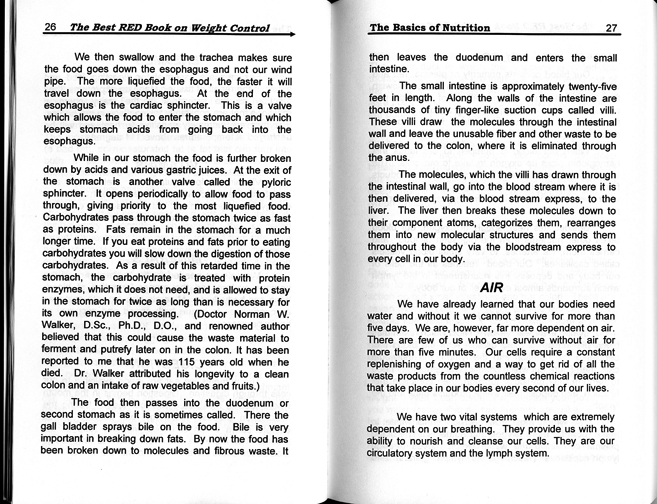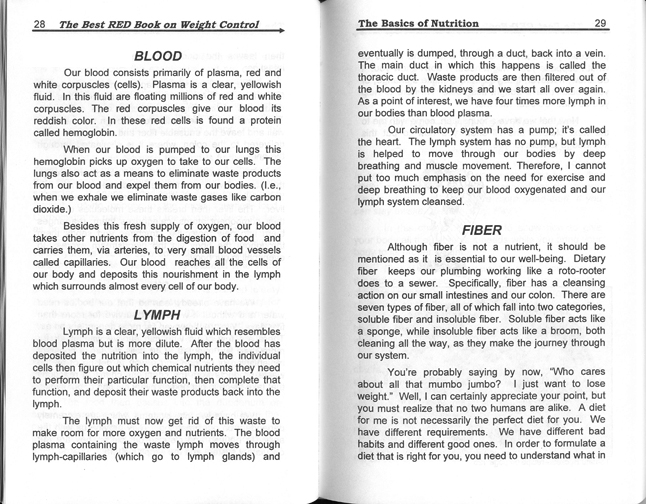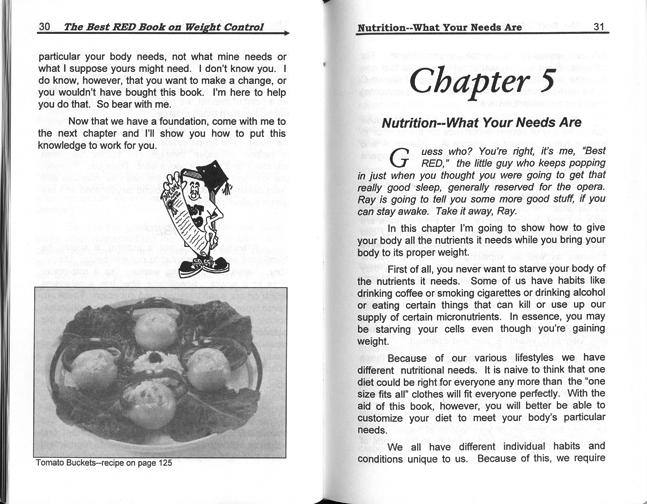Nutrition
The Basics of Nutrition
 by Marti Avila
by Marti Avila
Hello and Welcome,
I wanted to create a simple, easily understood page on the basics of nutrition. So with permission from the publisher I just copied part of the chapter on the basics of nutrition from The Best RED Book on Weight Control. Here it is:
Our bodies are composed of millions of cells. These cells require fuel in order for them to work properly. When the cells receive the proper types of good fuel, they can work to their maximum capacity. If they get low quality fuel, they may still work, but inefficiently and far below their potential. If they get no fuel, they will cease to function.
Most of the fuel our bodies get comes from the food we eat. These foods contain water, vitamins, minerals, enzymes, carbohydrates, proteins and fats. These nutrients provide our cells with the basic materials with which to carry out their individual processes. Of these nutrients our bodies require large amounts of water and carbohydrates, as compared to lesser amounts of proteins and fats, and to the relatively small amounts of vitamins, minerals and enzymes. All, however, are essential to proper health and vitality.
Water
Water is the primary transporter of nutrients throughout the body and is essential in carrying waste from it. Water is involved in nearly every bodily process. Water makes up over 70% of our body and we cannot live for more that five days without it.
Carbohydrates
Carbohydrates supply our body with energy. There are two types of carbohydrates, simple and complex. Simple carbohydrates are sugars. Our bodies can metabolize these simple carbohydrates and get them in our blood stream very fast, giving us quick energy. The pancreas must produce insulin to metabolize these sugars. A high intake of these sugars can cause the pancreas to become overburdened to the point where it stops making insulin, which causes diabetes.
The complex carbohydrate, on the other hand, is much more desirable. It burns at a slower rate, doesn’t overtax the pancreas and supplies us with energy over a prolonged period of time. Vegetables and fruits are rich sources of complex carbohydrates.
Protein
Proteins are made from different combinations of amino acids. Our metabolism breaks down the protein we eat into amino acids to form new proteins for whatever our body happens to need. For example, amino acids form the proteins which are used in the construction of hair, muscles, organs, tendons, ligaments, nails and certain body fluids. (There are tens of thousands of different proteins each serving a different purpose. E.g., hemoglobin is a protein in the red cells of our blood which carries oxygen to the cells; collagen is protein which strengthens our skin, bones, blood vessels and forms connective tissues like ligaments and tendons.) Amino acids are truly the building blocks from which every cell in our body is made. Second only to water, the largest amount of our weight is made up of proteins.
The amino acids derived from the protein we eat are also necessary for the proper functioning of our nervous system. They act as neurotransmitters by which the brain sends messages. Since protein provides the structure for every living thing, the sources of protein are both plants and animals.
Okay, I got tired of typing so I just copied the book pages:




If you would like to learn more on how this book can help you customize a diet that will fit with your specific nutritional needs, Click Here.
Need supplements? Here is a link to the Doodlesnips Vitamin store. Click here.